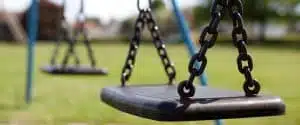The government has abandoned plans to introduce mandatory reporting of child abuse for social workers and other children’s professionals.
Following a consultation on whether to introduce mandatory reporting or a ‘duty to act’, the government has shelved plans saying the overwhelming response was that it would not be beneficial to child protection.
Chief Social Worker for Children and Families, Isabelle Trowler, said: “The government has listened to the views of social work leaders who know the system best and understand the unintended consequences that introducing mandatory reporting could produce.
“Our focus should be to continue building public confidence in our first-class child protection system which holds a door wide open for vulnerable children and also provides support for families,” she added.
The consultation received more than 760 responses and just 25 percent agreed with mandatory reporting and only 12 percent agreed with introducing a ‘duty to act’.
Nearly 70% felt mandatory reporting could have an adverse impact on the child protection system while 85% said it would not in itself lead to appropriate action being taken to protect children.
England already has a higher rate of reporting than countries where such duties are in place, and the evidence from serious case reviews, Ofsted inspections and the consultation responses does not suggest there is a systemic problem.
The government issued its response to the consultation, ‘Reporting and acting on child abuse and neglect’ and outlined that 63% were in favour of allowing the government’s existing programme of child protection reforms time to embed before considering additional statutory measures.
Children and Families Minister, Nadhim Zahawi, said: “We owe a huge debt of gratitude to the social workers and other professionals who support the most vulnerable in our society, especially those who have been victims of abuse.
“The response to this consultation shows the strength of feeling among the sector on this extremely important issue, and it’s vital that we work directly with people on the ground, supporting them to carry out their work sensitively and efficiently.
“Decisions we make as a government should be with the ambition of improving outcomes for as many in society as possible, which is why we must listen to the views and experience of the sector as we progress further with our reform agenda,” he added.
Instead, the government set out plans to strengthen information sharing between police, social workers and healthcare professionals to tackle child abuse and neglect and to improve joint working and decision-making.
The government has confirmed that it will:
- prove coordination between agencies involved in keeping children safe through better information sharing – implementing stronger safeguarding arrangements locally, as well as clearer, stronger national statutory guidance;
- publish revised Working Together to Safeguard Children statutory guidance to make clear the roles and responsibilities of the agencies involved in protecting children from abuse and neglect;
- build on its successful campaign, Together, we can tackle child abuse, a new phase of which launched in February 2018;
- continue to boost the professional development of social workers and practitioners by improving training, accreditation and regulation, supporting them to better protect children and promote their welfare; and
- consider the current legal framework to assess whether it is sufficiently robust in terms of criminal offences for concealing child abuse and neglect.
National Police Chiefs’ Council Lead for Child Protection, Chief Constable Simon Bailey said: “I’m pleased that the Government has listened to the views of frontline professionals by promising to work with us to improve coordination between agencies as they work to tackle child sexual abuse.
“Teachers, social workers and other professionals can and do play a vital role in keeping children safe from harm but our research suggests imposing additional legal requirements on them could be counterintuitive – with forces finding themselves inundated with reports that shouldn’t ever have been made.
“Key to tackling this horrendous crime is ensuring these dedicated professionals are well trained in how to spot the signs of abuse and act on them, and that agencies are truly coordinated,” he added.


